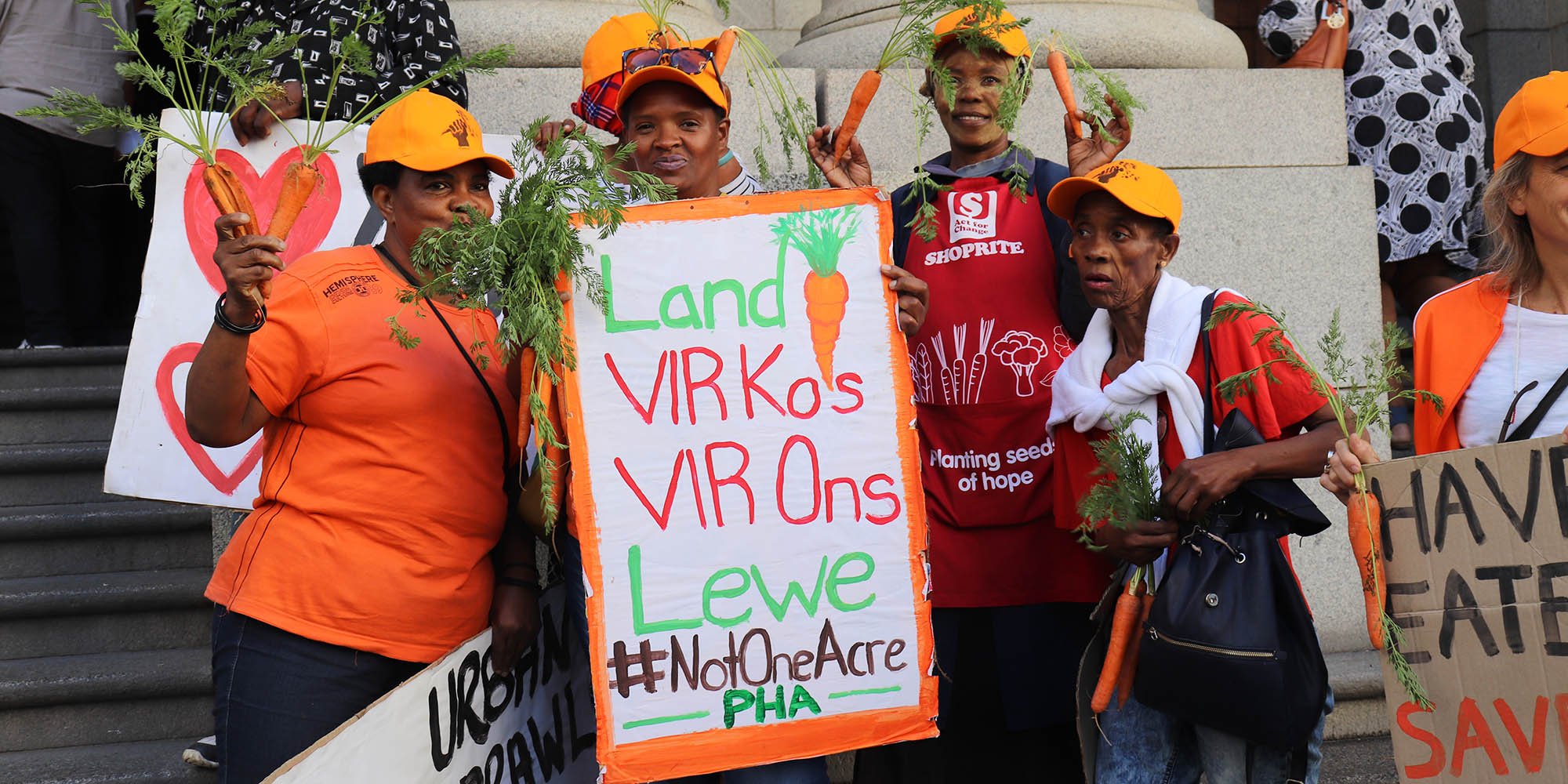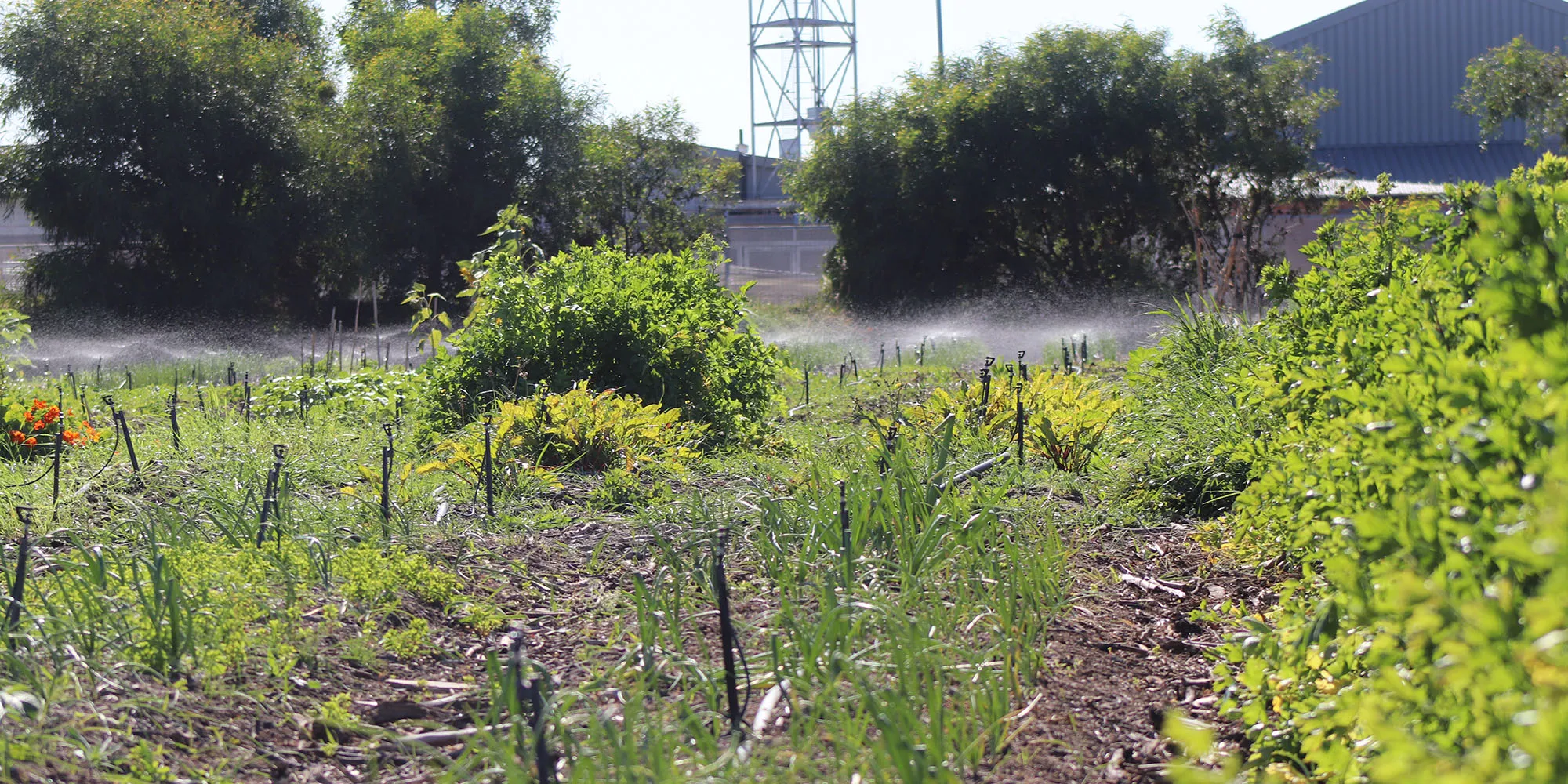The Philippi Horticultural Area (PHA) case, which PHA Food and Farming Campaign chairperson Nazeer Sonday on Tuesday called “precedent-setting” had attorneys representing the PHA Campaign, the City of Cape Town, the province and the developers debating a 2011 provincial government decision to rezone the city’s urban edge. The decision resulted in urban land encroaching on agricultural land, located in what campaigners refer to as the Philippi Horticultural Area.
The piece of land under debate comprises 472.36ha in an area that the campaign argues forms part of the PHA, while the respondents argue that it is not part of the horticultural area. Developers intend on turning the area into Oakland City, comprised of 15,000 housing units, a private school, malls and other urban developments, according to advocate Michael Janisch, who represented the Oakland City Development Company.
The PHA Campaign, supported pro bono by advocate Murray Bridgman, claim that Western Cape Local Government, Environmental Affairs and Development Planning MEC Anton Bredell, who made the 2011 decision to shift the city’s urban edge and excise the land from the PHA, did so unlawfully.
The PHA Campaign on Wednesday argued that Bredell cited the wrong statutory provisions in shifting the urban edge. He acted in terms of the Land Use and Planning Ordinance, and the Physical Planning Act. Had he acted in terms of the Development Facilitation Act his decision would have been lawful, argued Bridgman.
A year after Bredell amended the urban structure plan and changed the designation of the land from horticultural use to urban development, the MEC withdrew the plan. According to Ron Paschke SC, for the City, the applicants did not contest this withdrawal. Ten days after the withdrawal, City council adopted the Cape Town Spatial Development Framework. It included the Oakland land in the urban edge, marking it for urban development.
Although the City and province argued that the 2011 decision was withdrawn and therefore is moot, Bridgman argued that “the illegal decision tainted” further decisions.
The campaign wants Bredell’s decision reviewed, but Paschke asked Judge Kate Savage to dismiss the request to review the 2011 decision.

Farm owners, backyard farmers and farm workers hold up carrots from the Philippi Horticultural Area on the steps of Cape Town High Court on 15 October. (Photo: Tessa Knight)
The PHA Campaign also wants 3,000ha of horticultural land in Philippi to be protected. In 2018 1,884.8ha of the PHA, which the City considered the “core PHA” and excludes the Oakland land, was declared a Critical Natural Area and cannot be used for development.
But the campaign wants the entire area protected, including Oakland land.
Nazreen Bawa, representing the province, said in reference to the development the provinces was “damned if they do and damned if they don’t” allow development to occur.
According to Bredell’s spokesperson, James-Brent Styan:
“The province’s main goal is also to protect and look after the PHA farming area. Not a centimetre of land currently being used for farming in the PHA area is at risk of being taken over by the current developments under consideration.”
However, the campaign also charged that Bredell did not have enough information to make the 2011 decision to shift the urban edge, saying he should have erred on the side of a “precautionary principle”.
In particular, the campaign emphasised the need to protect the Cape Flats Aquifer, which it claims has the potential to “support increased agriculture and to provide potable water for Cape Town”.
But both the province and the City argued that farming in the area will have a significant detrimental impact on the aquifer, and that proposed developments will include necessary measures to protect the aquifer.
“This is not a development which will prevent recharging of the aquifer. This is not a development which will cause pollution to the aquifer in a way that cannot be mitigated,” Paschke told the court.
Pashke also argued that the campaign is anti-development, questioning why they would want to prevent the creation of thousands of jobs in an area where people struggle to find work.
“Expert reports on food security say that the problem of food security is not a shortage of food, but [of] people not being able to afford to buy the food,” Pashke said on Tuesday, arguing that the development would create jobs that would provide residents in the area with much-needed funds.
But the PHA Campaign claims the poorest of the poor are only able to feed their families because of food from the PHA, and the land under debate could be used to farm more food.
Bawa, Paschke and Janisch all argued that the fact that the land has not been used for farming purposes and has instead been used for sand mining is a common cause. Paschke referred to the applicant’s claim that the land could be farmed as a “myth”.

For nearly a decade farmer and activist Nazeer Sonday has fought for his right to continue growing vegetables on his piece of land in the Philippi Horticulture Area. (Photo: Tessa Knight)
Bawa also referred to the “erroneous argument that land will be used for farming”. Bridgman and Sonday counter that the land has irreplaceable agricultural worth, as indicated in a study by Indego Consulting.
Importantly, Janisch said the land will not be used for farming, saying:
“The developer seeks to create real value out of land that has only been used for sand mining. It has no desire to develop farming land.”
After two days of proceedings, Judge Kate Savage has taken the case under review. Neither the City nor the province will seek costs from Sonday. However, Oakland City will. DM


















 Become an Insider
Become an Insider